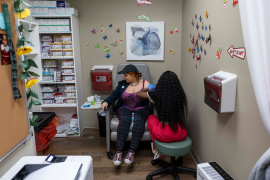For years, the medical community has warned of an impending crisis in clinical research. A study released today in the Journal of the American Medical Association says that close to half of the research leaders at U.S. medical schools do not consider their clinical research enterprises to be healthy or robust. They also question the overall quality of the clinical research being conducted. Providing evidence of the impact of financial pressures on the clinical research mission of academic health centers (AHCs), nine of 10 medical school research leaders report that pressures to see patients and insufficient clinical revenue are problems for clinical research. Four of five research leaders (81 percent) consider the challenges facing clinical research at medicals schools to be urgent or extremely urgent. Despite this sense of urgency, less than half of these leaders said that their department or institution had implemented strategic policies to address the problems facing clinical research. The research provides the first systematic, national data on how leaders in the medical and scientific community view the health of their clinical research enterprise. The survey of 712 department chairs and senior research administrators at the 122 accredited, allopathic U.S. medical schools was conducted by Eric G. Campbell, Ph.D., Institute for Health Policy at Massachusetts General Hospital and Harvard Medical School; Joel S. Weissman, Ph.D., and David Blumenthal, M.D., M.P.P., also of the Institute for Health Policy; and Ernest Moy, M.D., M.P.H., of the Association of American Medical Colleges, with support from the Commonwealth Fund Task Force on Academic Health Centers and the Pew Charitable Trusts. When comparing the quality of clinical research to that of non-clinical research, senior research administrators and medical school department chairs did not give clinical research high marks. "Academic leaders perceive the clinical research activities in [AHCs] to be less healthy, of poorer quality and facing greater challenges than the non-clinical research activities," the study authors state. Clinical research, defined as research that involves living humans as subjects, is critical to translating the results of basic science into useable health care products and services. It includes, but is not limited to, clinical trials and epidemiological research. "Here we have a survey where medical school leaders across the country have taken a hard look at their clinical research enterprises and many are concerned about what they saw," said Campbell. "If those who are closest to this kind of research think there are problems, that sends a clear signal that steps need to be taken to improve clinical research - or at least raise it to the quality level of basic research." Research leaders report that clinical research faces several serious challenges:
- Pressure on clinical faculty to see patients (93 percent see this as a problem)
- Insufficient clinical revenues (89 percent)
- Inability to recruit trained clinical researchers (75 percent)
- Lack of external support for clinical research (72 percent)
- Competition from contract research organizations (48 percent)
- Problems associated with the internal review board (IRB) process (38 percent)
- Finding research subjects (37 percent)


